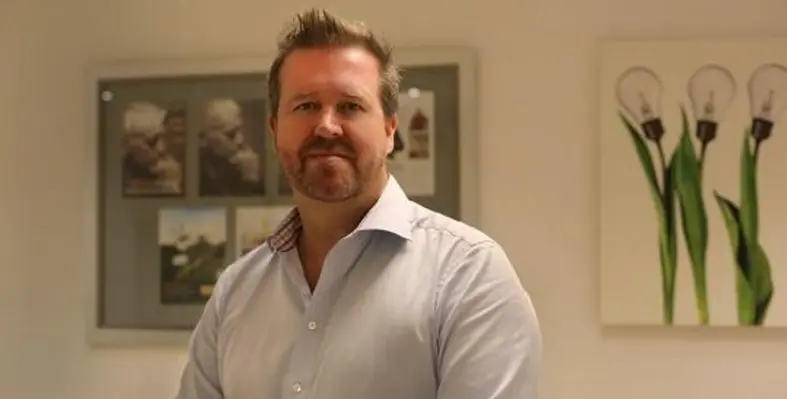James Shepherd, CEO of Altaaqa Global Energy Services, talks to African Review about why the company’s Build-Operate-Own-Transfer (BOOT) model is a unique offering for customers
Congratulations on your recent appointment as CEO at Altaaqa Global Energy Services. You have vast experience in the energy sector, what have been your career highlights to date?
Over the past 26 years I have been involved with some fantastic projects from the first cross-border projects from Mozambique, the 2010 FIFA World Cup in South Africa to the first solar hybrid projects in mining. Throughout my career, the highlight has been the remarkable teams I have worked with and at Altaaqa Global, we have a fantastic team who make a big difference to our customers. I am thoroughly enjoying this new phase of my career.
I understand you are currently spearheading the company’s major rebranding. How important is this for the company in shaping the future of the energy industry?
The market has changed considerably over these past years, like any successful company we needed to adapt and change. The rebranding was a natural step to instigating that change but at the same time reflecting the long heritage of the Zahid Group and demonstrating our technology-agnostic solutions that best fit our customers’ needs.
The Build-Operate-Own-Transfer (BOOT) financial model is a unique offering for customers in the industry. Could you provide more details and explain how it works?
Traditional BOOT models have existed for many years in the Independent Power Producer (IPP) space, whereby over a period of time the offtaker/customer own the asset. In the shorter term projects, the model has been one of rental where at the end of the contract the equipment is taken away.
What I have experienced over the past 26 years is that, more often than not, that same rental equipment is required the year or two after, thus requiring a new rental contract at a high cost. What we have done is introduce the traditional IPP BOOT model to the shorter term projects to provide a fully financed solution with an O&M contract. At the end of the day, customers are thereby able to own the assets outright with no upfront payments or balloon payments at the end of the projects. Customers can either then keep the existing plant as back-up to maintenance, for peaking requirements, future growth or redistribute it to other areas of their network to reduce transmission losses.
How many BOOT deals does Altaaqa Global Energy Services have? Do you believe this model could be revolutionary in Africa for various sectors?
We have a number of projects globally, most recently, a 20MW project in Colombia which is a five-year BOOT, a fifteen-year 25MW turbine BOOT in the UAE and a 20MW project in Nigeria. Demand is high for this solution and is ideal for both industrial and mining sectors. Not only do we see it as replicable but we have a number of clients who wish for us to install it across a number of locations for them.
How significant is BOOT to the company's major rebranding campaign and to the company's expanded product offering?
BOOT is one of the elements but there is also the solar hybrid technology with our sister company Greencells Group and micro-grids with Powerhive. We are focused on offering our clients real choice and the lowest cost of energy to meet their specific needs.
What differentiates Altaaqa Global Energy Services from its competitors?
Being technology-agnostic, we are unlike many of our competitors who are focused on turbines or small reciprocating engines. We are able to offer both, of course, and also larger, more efficient engines coupled with solar and hybrid solutions. But the number one thing that differentiates us from our competitors is our people, their professionalism, passion and customer focus.
Could you elaborate more on the significance of being a true strategic power partner to clients rather than just a technology provider?
Technology is evolving at an incredible pace and we are in an enviable position to our competitors whereby we have not invested in just one type of technology. We are able to provide short-term, medium-term and long-term solutions. We also have the capability to upgrade power systems with more efficient technologies as they become available whether that is solar, higher efficiency engines or turbines. We always aim to provide the most efficient current solution to our customers and work closely with them year-on-year to improve that efficiency as new technology becomes available.
What are the future trends to watch for across Africa’s energy sector?
It has been a tough few years for Africa utilities: a lack of USD liquidity in many markets, poor transmission, and ageing of existing plants, coupled with an ever growing demand have seen many utilities and energy ministries running a two-tier strategy of keeping the lights on now while trying to build for the future. This has put a huge strain on the balance sheets of most utilities in Africa and future investments will have to come from the private sector. The major trends I see are the growth of microgrids/distributed power, LNG solutions, the continued rise of renewables but battery storage will be the key and the integration of grids across Africa to evacuate power from a country with a surplus to one that has a deficit and is in need of power.












